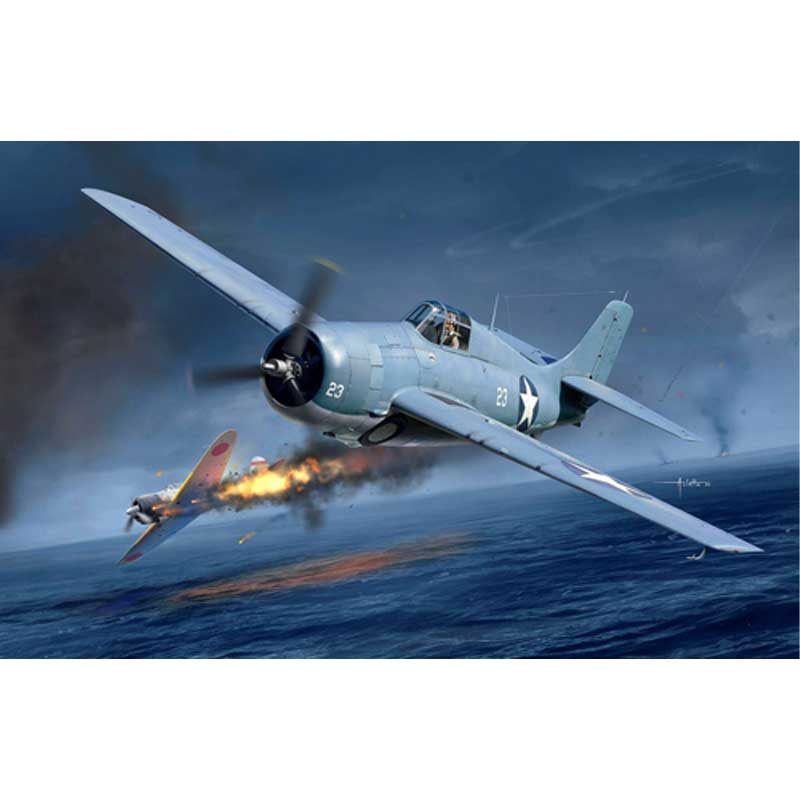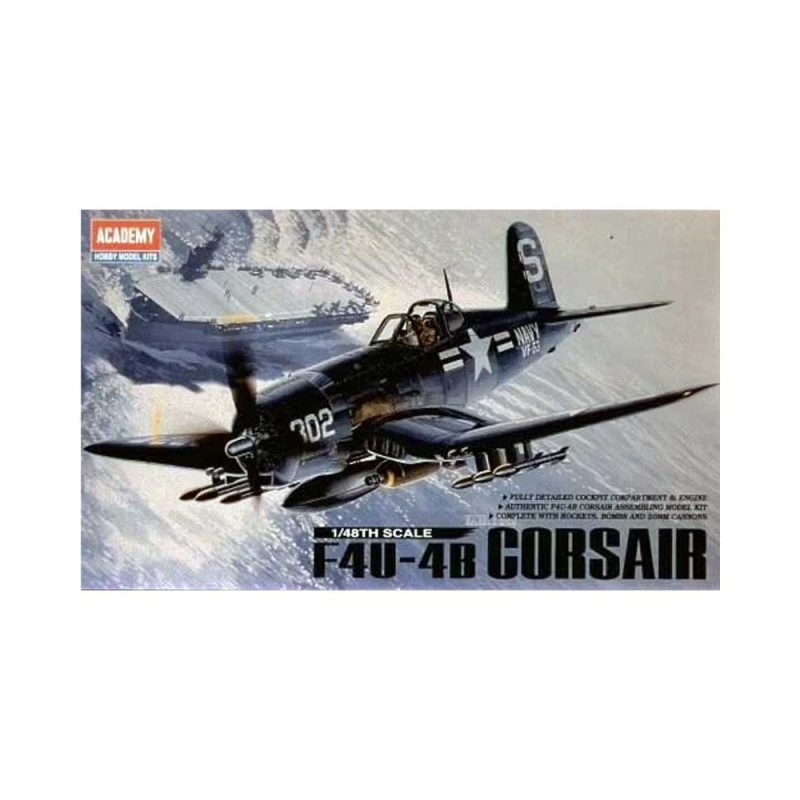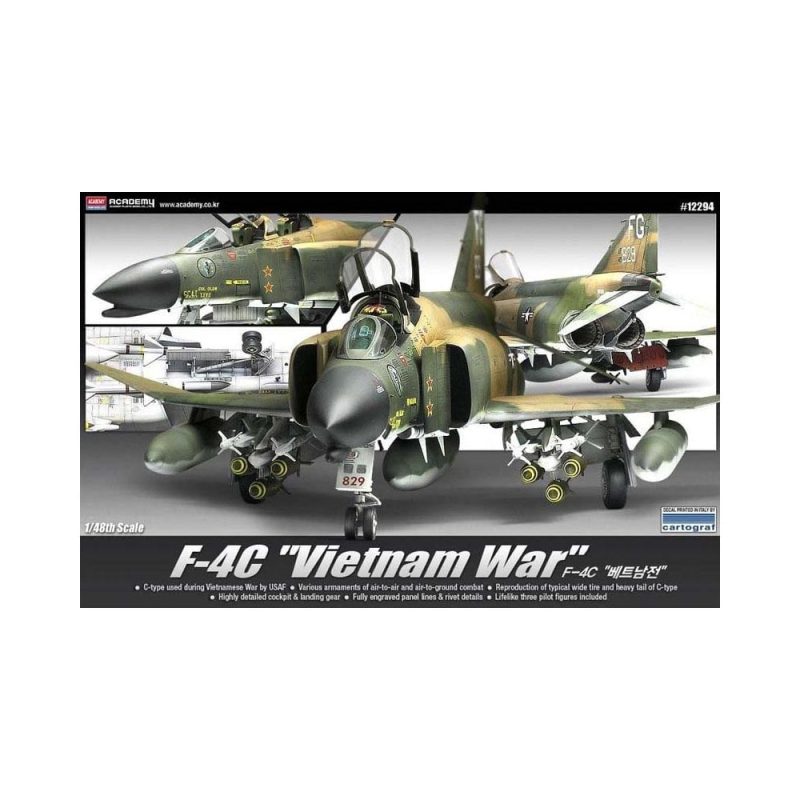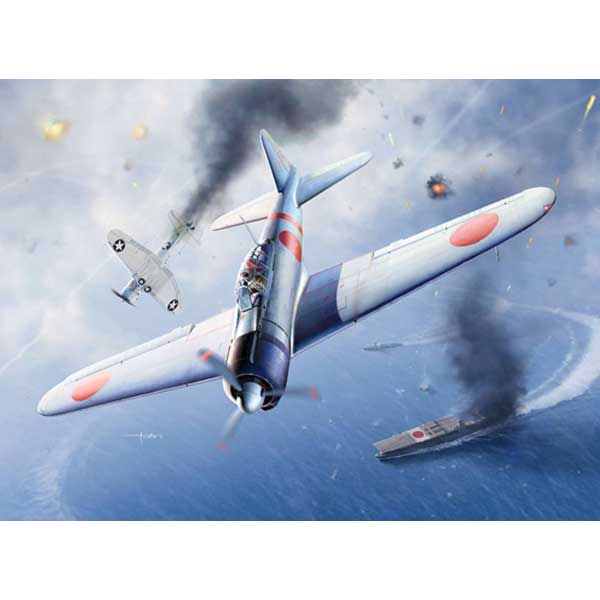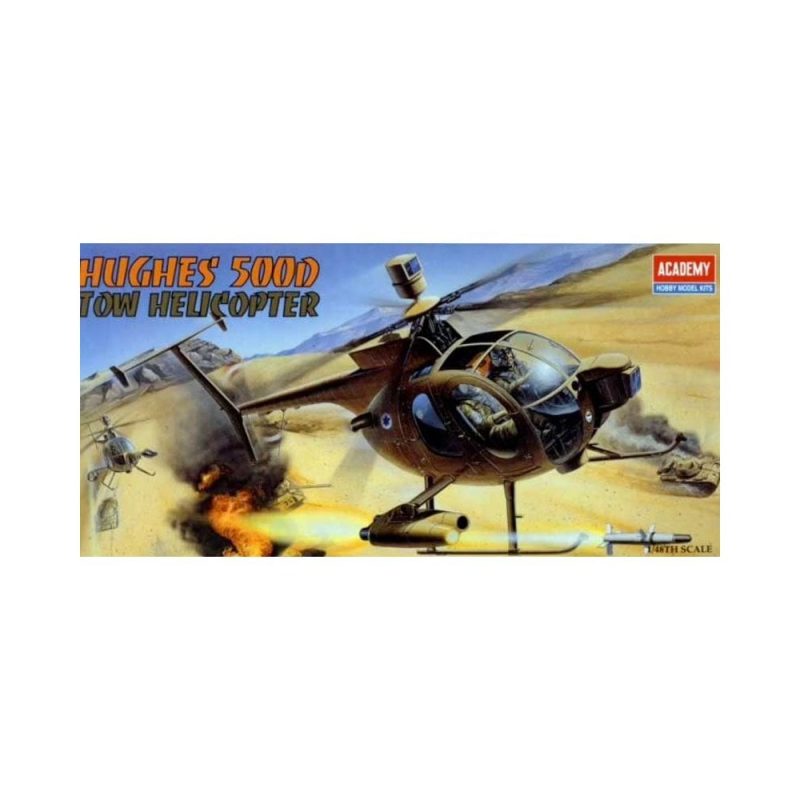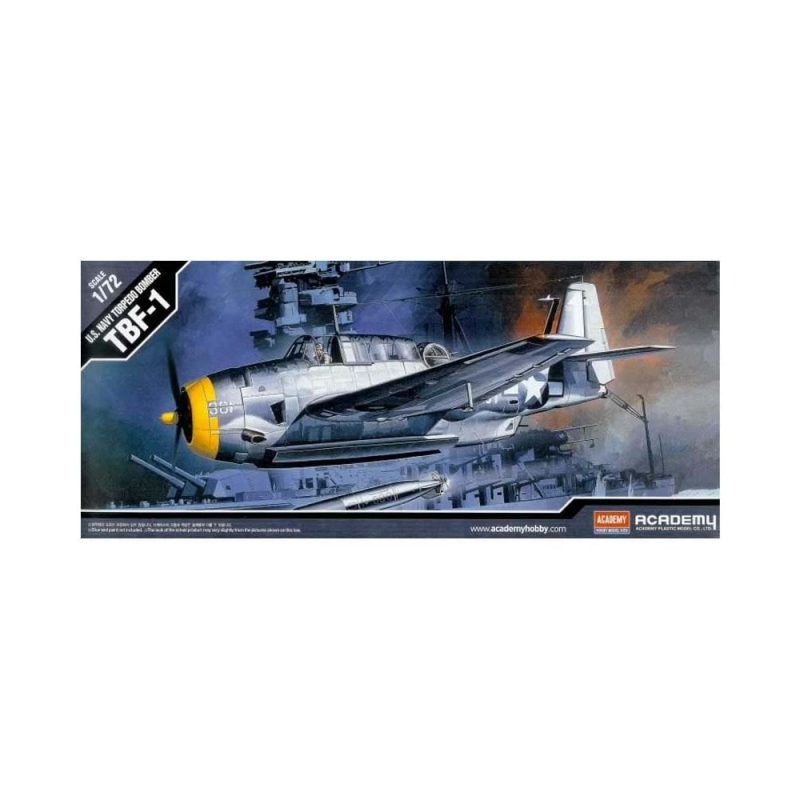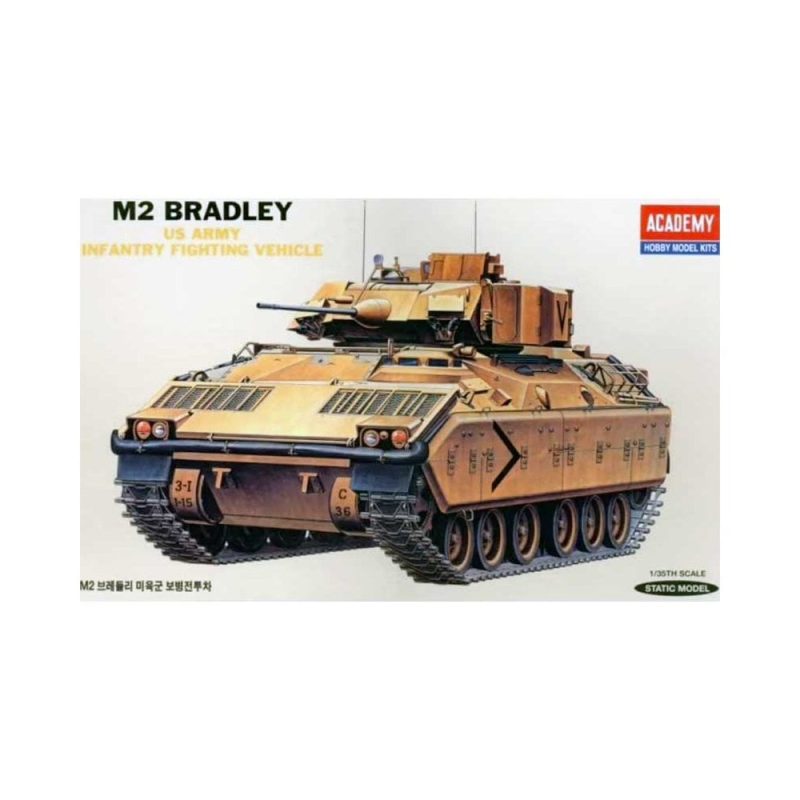Academy Plastic Model Kit
USN F4F-4 Wildcat “Battle of Midway” (1/48) 12355
The Academy 1/48 scale F4F-4 Wildcat kit represents the rugged US Navy carrier fighter that played a crucial role in the Battle of Midway. This newly tooled kit features fine surface detail and options to build the aircraft with wings extended or folded, thanks to Grumman’s innovative “Sto-Wing” folding mechanism. The set also includes a canopy mask and photo-etched seat belts for added realism, with decal choices for four historically significant aircraft flown by US Navy pilots during June 1942.
- 1/48 scale plastic model kit
- Grumman F4F-4 Wildcat carrier fighter
- New tooling with fine surface details
- Optional folded wing configuration
- Includes canopy mask and photo-etch seat belts
- Choice of four aircraft markings from the Battle of Midway
History
The Grumman F4F Wildcat entered US Navy service in 1940 and quickly became the frontline fighter at the outbreak of the Pacific War. Though outperformed in speed and manoeuvrability by the Japanese Zero, the Wildcat proved resilient and deadly in the hands of skilled pilots. The F4F-4 introduced folding wings and six .50 calibre machine guns, allowing more fighters to be deployed from carriers. At the Battle of Midway in June 1942, Wildcats flew alongside SBD Dauntless dive bombers in defence of US carriers Yorktown, Enterprise, and Hornet. Employing tactics like the “Thach Weave,” devised by Lt Cdr John S. Thach, Wildcat pilots inflicted heavy losses on Japanese fighters, helping to turn the tide of the Pacific War. The Wildcat’s durability and role at Midway cemented its place as one of the most important US Navy aircraft of WWII.
Note: This model kit requires assembly and painting. Glue, paints and tools are not included and must be purchased separately.

